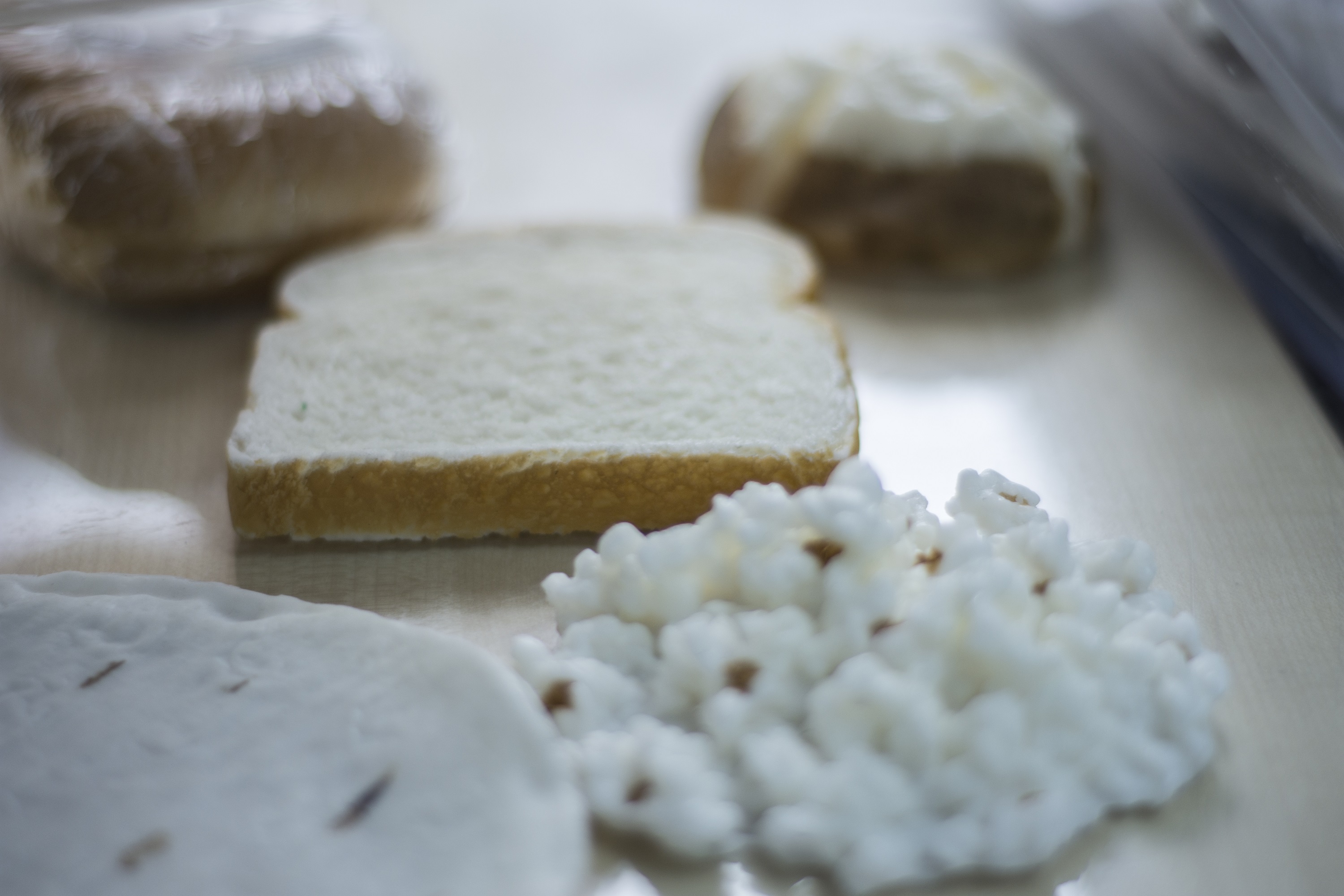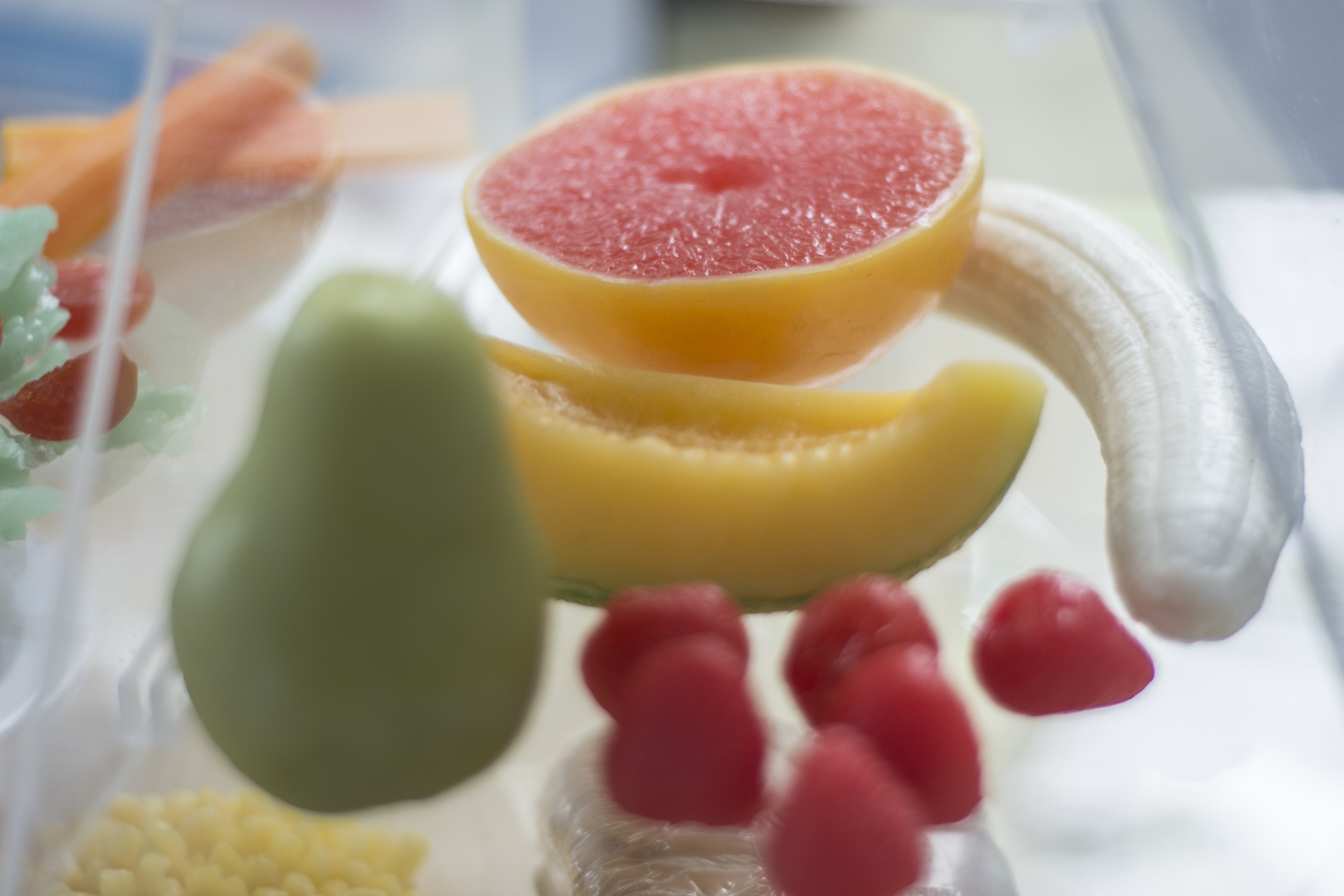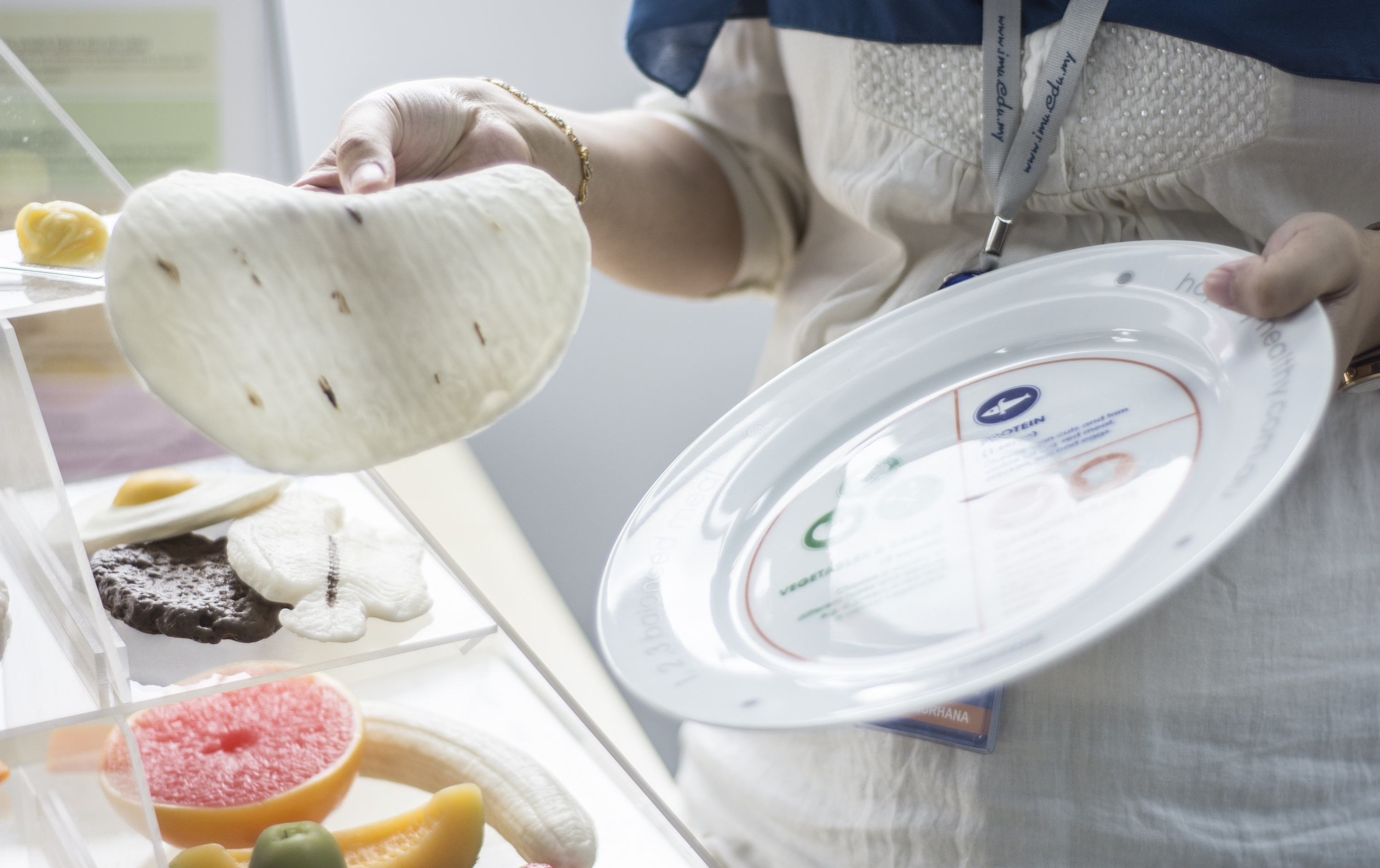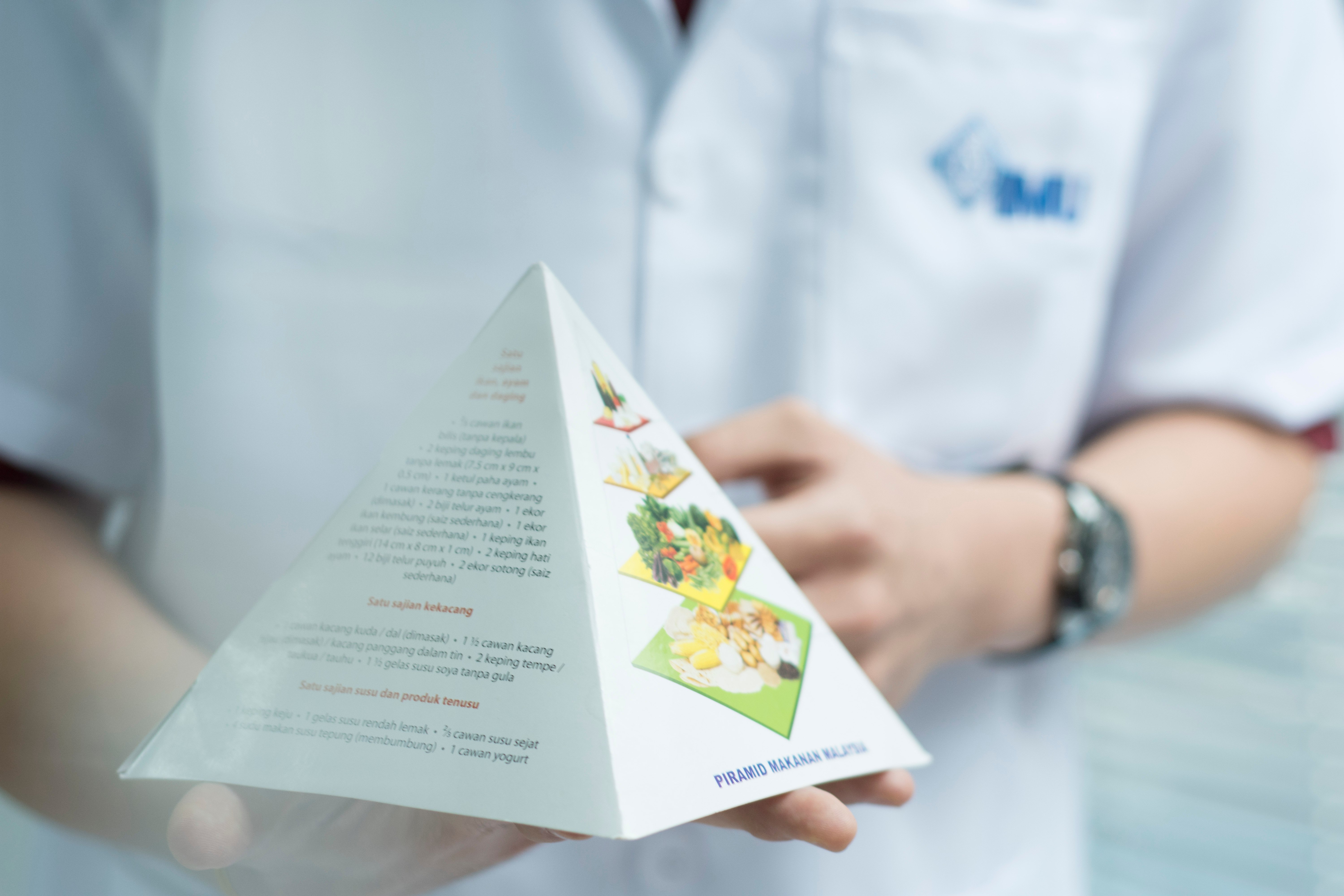The holy month of Ramadan is now upon us, and for Muslims around the world, it is a time of fasting and abstinence during the hours between sunrise and sunset, for the duration of 29 to 30 days. To help those who are trying to carry out their observances as healthily as possible, we have compiled some tips on healthier eating habits, so that you will be able to maintain a nutrition-rich diet.  When a person is not fasting, the body reacts in a typical way to eating. When you eat, your digestive system breaks down food into glucose (a sugar) for energy. When you do not eat, your blood glucose level drops. Your body then turns to stored glucose, which is called glycogen. This is what your body uses for energy. Once glycogen is used up – and assuming you still have not eaten or drunk anything – the body turns to fat and muscle stores to burn for glucose. As the Ramadan daily fast lasts anywhere between six to 13 hours between sunrise and sunset (depending on where in the world you are and which season of the year Ramadan occurs in) there is enough time in which to replenish energy stores to avoid your body turning to protein or muscle for energy. Usually, the body is considered as having gone into fasting mode eight hours after the last meal.
When a person is not fasting, the body reacts in a typical way to eating. When you eat, your digestive system breaks down food into glucose (a sugar) for energy. When you do not eat, your blood glucose level drops. Your body then turns to stored glucose, which is called glycogen. This is what your body uses for energy. Once glycogen is used up – and assuming you still have not eaten or drunk anything – the body turns to fat and muscle stores to burn for glucose. As the Ramadan daily fast lasts anywhere between six to 13 hours between sunrise and sunset (depending on where in the world you are and which season of the year Ramadan occurs in) there is enough time in which to replenish energy stores to avoid your body turning to protein or muscle for energy. Usually, the body is considered as having gone into fasting mode eight hours after the last meal.  There are benefits of fasting during the month of Ramadan, aside from the spiritual and psychological benefits for Muslims, such as discipline. In 1994 the first International Congress on “Health and Ramadan”, held in Casablanca, entered 50 extensive studies on the medical ethics of fasting . While improvement in many medical conditions was noted, however, in no way did fasting worsen any patients’ health or their baseline medical condition (First International Congress on Health and Ramadan, Jan 19-22, 1994, Casablanca, Morocco). For example, for some the physiological effect of fasting includes lowering of blood sugar, lowering of cholesterol and lowering of the systolic blood pressure. On the other hand, patients who are suffering from severe diseases, whether Type I diabetes or coronary artery disease, kidney stones, etc., are exempted from fasting and should not be allowed to fast. (Athar, S. (1996). A report on the First International Congress on Health and Ramadan. Journal of the Islamic Medical Association of North America, 28(1) ans Salti, I., Bénard, E., Detournay, B., Bianchi-Biscay, M., Le Brigand, C., Voinet, C., & Jabbar, A. (2004). A Population-based study of diabetes and its characteristics during the fasting month of Ramadan in 13 countries results of the Epidemiology of Diabetes and Ramadan 1422/2001 (EPIDIAR) study. Diabetes care, 27(10), 2306-2311).
There are benefits of fasting during the month of Ramadan, aside from the spiritual and psychological benefits for Muslims, such as discipline. In 1994 the first International Congress on “Health and Ramadan”, held in Casablanca, entered 50 extensive studies on the medical ethics of fasting . While improvement in many medical conditions was noted, however, in no way did fasting worsen any patients’ health or their baseline medical condition (First International Congress on Health and Ramadan, Jan 19-22, 1994, Casablanca, Morocco). For example, for some the physiological effect of fasting includes lowering of blood sugar, lowering of cholesterol and lowering of the systolic blood pressure. On the other hand, patients who are suffering from severe diseases, whether Type I diabetes or coronary artery disease, kidney stones, etc., are exempted from fasting and should not be allowed to fast. (Athar, S. (1996). A report on the First International Congress on Health and Ramadan. Journal of the Islamic Medical Association of North America, 28(1) ans Salti, I., Bénard, E., Detournay, B., Bianchi-Biscay, M., Le Brigand, C., Voinet, C., & Jabbar, A. (2004). A Population-based study of diabetes and its characteristics during the fasting month of Ramadan in 13 countries results of the Epidemiology of Diabetes and Ramadan 1422/2001 (EPIDIAR) study. Diabetes care, 27(10), 2306-2311).
On normal non-fasting days, the food pyramid serves as a reasonable guide to healthy, nutritious and balanced eating. For the fasting month, it is best to continue to refer to the food pyramid if you want to maintain healthy eating habits for iftar (the sunset, fast-breaking meal) or for sahur/sohor (the pre-dawn pre-fast meal).
The food pyramid is a good guide for making sure you get an adequate amount of energy-giving food such as carbohydrates and fat, to help prevent muscle breakdown. Fasting, however, can also sap your body of vital nutrients such as Vitamin D, calcium and Omega-3 fatty acids. Your body may get inadequate nutrients due to inadequate eating of foods. It is therefore important to continue to maintain a healthy and balanced diet during Ramadan by including nutrient-rich foods in your food choices.  It is also important to maintain your intake of essential minerals in your body, like calcium, potassium, selenium and zinc, among others. Even during the fasting month, you should ideally reach for mineral-rich foods such as vegetables, fruits, dairy products and meat, and vitamins from a variety of food sources (if your lifestyle is hectic and getting all that is required on a daily basis is not viable). Practise variety. Again, a healthy and balanced diet during the break fast meal (Iftar) would provide you with the necessary vitamins and mineral intake. Some basic fundamentals that you should bear in mind during the fasting period. Despite the temptation to do so, breaking fast is not an excuse to over-eat. Nor should you over-eat when having the pre-dawn meal (sahur) that is meant to sustain you during the hours of fasting. Also, you should try and avoid foods that are high in cholesterol, refined sugar and fat. There are eating habits that can do more harm after breaking fast rather than through actual fasting itself. If you are breaking your fast every day by consistently indulging in fried, fatty, sugar-loaded foods and drinks with little to no vegetables, fruits or fibre, these 30 days of such foods can, in fact, do more harm than good. It is all about proportion, portions and balance.
It is also important to maintain your intake of essential minerals in your body, like calcium, potassium, selenium and zinc, among others. Even during the fasting month, you should ideally reach for mineral-rich foods such as vegetables, fruits, dairy products and meat, and vitamins from a variety of food sources (if your lifestyle is hectic and getting all that is required on a daily basis is not viable). Practise variety. Again, a healthy and balanced diet during the break fast meal (Iftar) would provide you with the necessary vitamins and mineral intake. Some basic fundamentals that you should bear in mind during the fasting period. Despite the temptation to do so, breaking fast is not an excuse to over-eat. Nor should you over-eat when having the pre-dawn meal (sahur) that is meant to sustain you during the hours of fasting. Also, you should try and avoid foods that are high in cholesterol, refined sugar and fat. There are eating habits that can do more harm after breaking fast rather than through actual fasting itself. If you are breaking your fast every day by consistently indulging in fried, fatty, sugar-loaded foods and drinks with little to no vegetables, fruits or fibre, these 30 days of such foods can, in fact, do more harm than good. It is all about proportion, portions and balance.  A good rule of thumb when fasting is to consume food that is slow to digest, thus giving you a slow but consistent release of energy to last you throughout the day. This especially helps those who take long commutes to and from work and work long hours. Foods that do double duty by being high in fibre as well as being slow to digest, include grains and seeds. So think about incorporating bran, cereals, whole wheat, grains and seeds, potatoes with skin, vegetables such as green beans and almost all fruit, including apricots, prunes and figs into your sahur. Complex carbohydrates are also known to be good for the slow release of energy during the day, so you may want to include some in your pre-dawn meal. Foods that fall into this category include barley, wheat, oats, millets, semolina, beans, lentils and wholemeal flour. It is understandable that after 12 hours of fasting, all you can think about is food. However, it is still good sense to make healthy choices for iftar, rather than succumbing to the temptation of overloading on unhealthy choices. While buying curries and fried chicken for iftar for one day is a treat, consistently doing so throughout Ramadan may lead to your putting on extra weight during the fasting month.
A good rule of thumb when fasting is to consume food that is slow to digest, thus giving you a slow but consistent release of energy to last you throughout the day. This especially helps those who take long commutes to and from work and work long hours. Foods that do double duty by being high in fibre as well as being slow to digest, include grains and seeds. So think about incorporating bran, cereals, whole wheat, grains and seeds, potatoes with skin, vegetables such as green beans and almost all fruit, including apricots, prunes and figs into your sahur. Complex carbohydrates are also known to be good for the slow release of energy during the day, so you may want to include some in your pre-dawn meal. Foods that fall into this category include barley, wheat, oats, millets, semolina, beans, lentils and wholemeal flour. It is understandable that after 12 hours of fasting, all you can think about is food. However, it is still good sense to make healthy choices for iftar, rather than succumbing to the temptation of overloading on unhealthy choices. While buying curries and fried chicken for iftar for one day is a treat, consistently doing so throughout Ramadan may lead to your putting on extra weight during the fasting month.  This is where the food pyramid can help you make reasonable choices. There is no need to cut out carbs or proteins or fats for your iftar, if you follow the proportions and portions as set out in the food pyramid. Look for foods that have been grilled, baked or steamed, as opposed to foods that have been fried or are filled with oil (for example, curries). Foods prepared in alternative methods are healthier than deep-fried or oil-heavy foods. Fluid intake is as crucial as a balanced diet. While those fasting during Ramadan are forbidden to drink fluids, it is important to replenish fluids during sahur and iftar. Drink adequately at sahur. Choose sugar-free drinks and aim for eight glasses a day. Water is the ideal fluid for hydration, as opposed to sweetened juices, caffeinated or carbonated drinks – during the non-fasting hours. Try not to drink all at once, though; regular sips during non-fasting hours will help. Dehydration is a common occurrence for those who are fasting. Dehydration can disrupt your day and limit your ability to function properly. There is a greater risk of dehydration for the elderly and for those whose medication is diuretic. If you are feeling faint, dizzy, lethargic with muscle cramps, it could be a sign that you need to rehydrate as soon as possible.
This is where the food pyramid can help you make reasonable choices. There is no need to cut out carbs or proteins or fats for your iftar, if you follow the proportions and portions as set out in the food pyramid. Look for foods that have been grilled, baked or steamed, as opposed to foods that have been fried or are filled with oil (for example, curries). Foods prepared in alternative methods are healthier than deep-fried or oil-heavy foods. Fluid intake is as crucial as a balanced diet. While those fasting during Ramadan are forbidden to drink fluids, it is important to replenish fluids during sahur and iftar. Drink adequately at sahur. Choose sugar-free drinks and aim for eight glasses a day. Water is the ideal fluid for hydration, as opposed to sweetened juices, caffeinated or carbonated drinks – during the non-fasting hours. Try not to drink all at once, though; regular sips during non-fasting hours will help. Dehydration is a common occurrence for those who are fasting. Dehydration can disrupt your day and limit your ability to function properly. There is a greater risk of dehydration for the elderly and for those whose medication is diuretic. If you are feeling faint, dizzy, lethargic with muscle cramps, it could be a sign that you need to rehydrate as soon as possible.  If you have drunk insufficient water during the pre-dawn breakfast meal, and you proceed with your fast, you may lose what little fluid is in your system if the day is extra hot (and you sweat), or if the activities you undertake during the day cause you to lose fluid. If you find that you are producing little urine, feel disoriented and confused during this period, you are likely under-hydrated. In this respect, you may want to consider breaking your fast and replenishing your body with water (and make up the incomplete fast with another day at a later date after Ramadan). There are many Islamic scholars who repeat the tenet that fasting should not cause harm to a Muslim, and so, if you are not drinking properly before your fast and are experiencing symptoms of dehydration, it is allowable to address this health issue first.
If you have drunk insufficient water during the pre-dawn breakfast meal, and you proceed with your fast, you may lose what little fluid is in your system if the day is extra hot (and you sweat), or if the activities you undertake during the day cause you to lose fluid. If you find that you are producing little urine, feel disoriented and confused during this period, you are likely under-hydrated. In this respect, you may want to consider breaking your fast and replenishing your body with water (and make up the incomplete fast with another day at a later date after Ramadan). There are many Islamic scholars who repeat the tenet that fasting should not cause harm to a Muslim, and so, if you are not drinking properly before your fast and are experiencing symptoms of dehydration, it is allowable to address this health issue first.  Exercising during the fasting month is not unheard of, but there are several things to note. Fasting naturally results in a reduced amount of energy, especially in the first few days, but many still find that they feel better if they keep up the exercise routines that they are used to during non-fasting months. You should, however, try to avoid high-impact exercises, and perhaps opt for gentler exercises such as yoga or slow swimming or walking. While you may be confident that you can do your exercises while fasting without placing undue stress on your body, it is still best to check with your doctor to be absolutely certain. There may be less harm in working out after you have broken your fast, so you might want to consider incorporating your usual workout after iftar instead. There are also concerns from individuals with diabetes about managing diabetes during the fasting month. It is strongly recommended that these individuals consult their doctor before proceeding with fasting to know whether fasting is safe for them. Usually patients would be screened according to the risk stratification to identify if he/she is at risk of developing complications during fasting. Individuals with diabetes who need insulin to control their diabetes may be advised against fasting. This because there are studies to support the assertion that fasting may be harmful and carry multiple risks to diabetics who suffer from Type 1 diabetes with poor glycaemic control (http://www.joslin.org/info/Ramadan-and-Diabetes.html, http://www.diabetesforecast.org/2014/10-oct/safe-fasting-with-diabetes.html?referrer=https://www.google.com/ and http://www.mems.my/file_dir/51611062755877252a1858.pdf). These studies have reported that decreased glucose levels during fasting leads to decreased insulin secretion. There are other studies that suggest that diabetics who have their condition under control before Ramadan are allowed to fast. However, they should still consult their doctor because the fasting month means these diabetics cannot take their medication during fasting hours.
Exercising during the fasting month is not unheard of, but there are several things to note. Fasting naturally results in a reduced amount of energy, especially in the first few days, but many still find that they feel better if they keep up the exercise routines that they are used to during non-fasting months. You should, however, try to avoid high-impact exercises, and perhaps opt for gentler exercises such as yoga or slow swimming or walking. While you may be confident that you can do your exercises while fasting without placing undue stress on your body, it is still best to check with your doctor to be absolutely certain. There may be less harm in working out after you have broken your fast, so you might want to consider incorporating your usual workout after iftar instead. There are also concerns from individuals with diabetes about managing diabetes during the fasting month. It is strongly recommended that these individuals consult their doctor before proceeding with fasting to know whether fasting is safe for them. Usually patients would be screened according to the risk stratification to identify if he/she is at risk of developing complications during fasting. Individuals with diabetes who need insulin to control their diabetes may be advised against fasting. This because there are studies to support the assertion that fasting may be harmful and carry multiple risks to diabetics who suffer from Type 1 diabetes with poor glycaemic control (http://www.joslin.org/info/Ramadan-and-Diabetes.html, http://www.diabetesforecast.org/2014/10-oct/safe-fasting-with-diabetes.html?referrer=https://www.google.com/ and http://www.mems.my/file_dir/51611062755877252a1858.pdf). These studies have reported that decreased glucose levels during fasting leads to decreased insulin secretion. There are other studies that suggest that diabetics who have their condition under control before Ramadan are allowed to fast. However, they should still consult their doctor because the fasting month means these diabetics cannot take their medication during fasting hours.
Wishing all Muslims Ramadhan Al Mubarak and Happy Fasting…!
This article is brought to you by IMU Healthcare.








